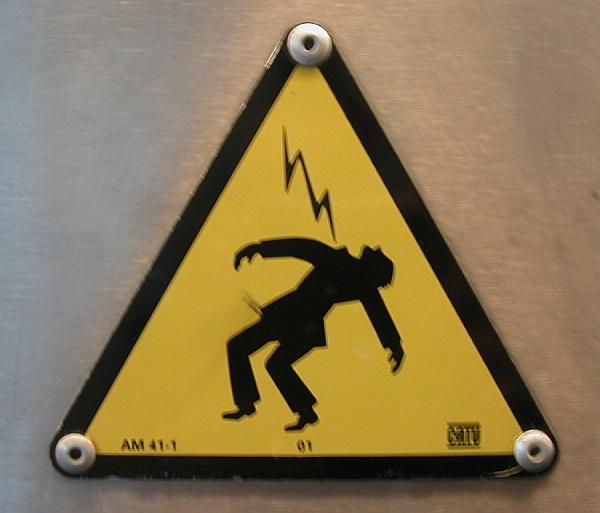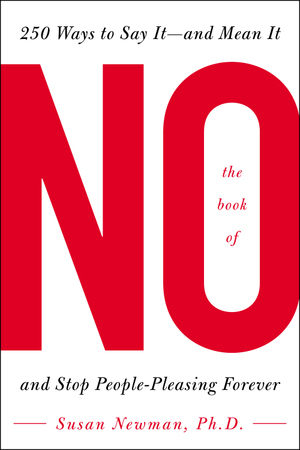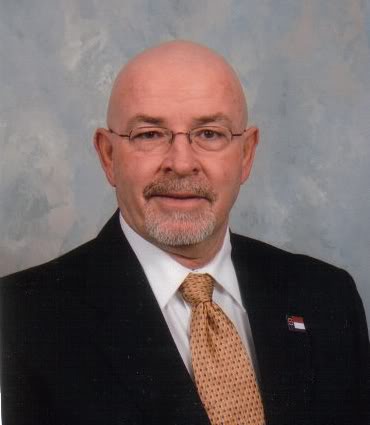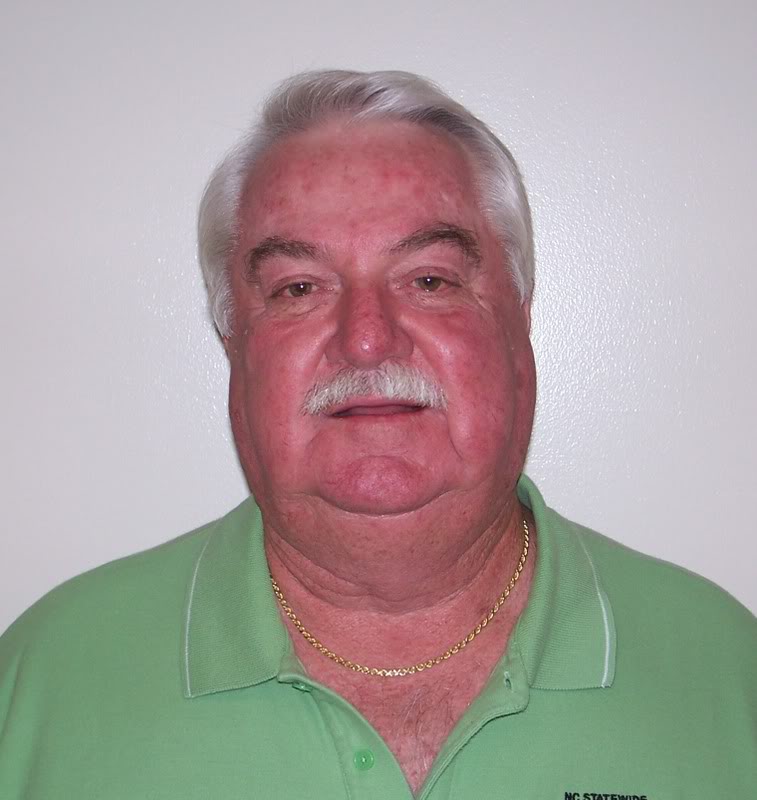Greetings
Friends in the Name of Safety:
With travel restrictions being placed on
everyone, we are currently reviewing our
APCAP schedule for the remainder of 2009.
As soon as we can make some determinations
we will send out an announcement. Please
bear with us as we continue to strive to
serve.
Also, we would like to say "Thank You" for
your continued support of the Safety
Education Section and look forward to seeing
you in May at our
79th Annual Statewide Safety Conference
May 12-15, 2008 at the Joseph Koury
Convention Center in Greensboro, NC.
There's no better way to gain knowledge at a
affordable cost...ZERO REGISTRATION! This
year promises to be another great conference
with quality speakers and great topics. Our
VENDORS will be there in full force to
provide you with new ideas and products too!
Travel is being cut back by everyone, but
this is a conference you will not want to
miss. The theme this year is "SAFETY - A
NEW YEAR!" Come for one day or stay for the
entire conference. For those needing WATER
& WASTEWATER CREDIT HOURS, Tuesday is the
day! You can get all six of your critical
hours at no cost.
We have moved the
SAFETY TALK CONTEST to Wednesday morning
this year to help you get more value for the
day as well. NETWORKING is always rewarding
at our Vendor sponsored Reception Wednesday
evening from 5:00 p.m. until 7:30 p.m.
Thursday will have a great EXECUTIVE SESSION
plus many topics during the afternoon to
peak your interest. By the way, the GRAND
PRIZE drawing sponsored by our VENDORS
promises to be awesome again this year. To
be eligible to win, you will need to visit
each booth and have the vendors sign your
card.
You won't want to miss Friday morning to
hear what OSHA has to say either.
By
CLICKING HERE you can pre-register for
the conference and download and
PRINT the program to show your boss why
they can't afford not to send you to this
conference this year. There's no better way
to face the challenges of 2009!
We look forward to a great conference and
hope to see you there!
|
Volunteer to
Better Yourself

Most people think of volunteerism as
performing a selfless act - helping
someone without expecting to receive
anything in return. However,
volunteerism not only has positive
effects on recipients, it also
provides many benefits for the
person doing the volunteering.
Volunteering is actually a great way
to learn new skills or fine tune the
ones you already have. For example,
planning a benefit for a charity can
help you to develop both budgeting
and planning skills. Volunteering is
also a great way to give back to
your community, and in the process
of doing so you might meet new
friends, or further develop your
network of professional contacts.
Volunteerism can also give you the
opportunity to learn and explore new
fields without making long-term or
time-consuming commitments - most
organizations accept volunteers for
as little as an hour or two per week
or month. So if you've got a cause
that piques your interest or is
close to your heart, don't be afraid
to volunteer and let it work for
you, too.
|
|
Regional Safety Councils

Please do not forget to support your
Regional Safety Councils by joining
their membership ranks and participating
in their scheduled events. For
membership applications, see the Quick
Links to the right.
|
Shame May Keep Addicts Addicted
There is a
considerable stigma surrounding almost
any addiction - and people who have
never faced addiction sometimes perceive
it as a weakness or a moral failing in
others. Unfortunately, this negative,
judgmental view of addiction may be a
major reason why only a fraction of the
people who need help for addiction
actually seek and receive that help.
Sadly, addiction is not the first
disease to which a stigma has been
attached. Throughout history, diseases
like leprosy, HIV, and cancer have all
had (and may still have) some level of
stigma attached to them. It has only
been through education that people can
begin to understand that, like these
other diseases, addiction does not
define the worth of the person who
suffers from it.
According to the National Institute on
Drug Abuse (NIDA), addiction is a
chronic disease: it has a tendency to
run in families, its onset and course
are influenced by environmental
conditions, and it can respond to
appropriate treatment - which may
include long-term lifestyle
modification.
NIDA also stresses that treatment needs
to be readily available and tailored to
the needs of each individual person.
Unfortunately, even if treatment is
available, it remains difficult for
people with addictions to seek help when
they must risk becoming social outcasts.
This stigma is so apparent that many
rehabilitation programs have the added
focus of restoring the dignity to
individuals who have sought treatment.
In addition, many state and federal laws
prohibit discrimination against people
in recovery from alcoholism and drug
addiction who are seeking jobs, housing,
or education.
The existence of such legal protections
and rehabilitation efforts to restore
dignity indicate that the stigma
surrounding addiction is pervasive to
make both doctors and lawmakers believe
that it must be regulated and addressed.
However, these efforts also represent an
increased awareness about the stigma
surrounding
addiction, and will hopefully allow more
and more people to obtain the help
which, in many cases, they so
desperately need.
|
NCIC Video Library
Check out our
Video Library !
View our online
Video/DVD listings. The new listings are
in
RED.
To view the rest of our Library and
download the REQUEST FORM, please
CLICK HERE
|
How
Do Shocks Happen?

When you turn on your
computer or other electrical equipment,
a current flows from the generating
source through conductors (typically
wires) to the equipment and then back to
the source. This is called a closed
circuit.
Unfortunately, any time part of your
body becomes part of that circuit, you
can get a shock, in which an electric
current enters the body at one point and
exits at another. Shocks will occur when
you touch both wires of an electric
circuit or one wire of an energized
circuit and the ground.
Shocks are usually quite painful, and
can range in seriousness from a tingle
to burns, cardiac arrest, or death. If
someone is electrocuted - you should NOT
touch the victim or the source of
electricity. Instead, shut off the
electrical current at the source and
call for help. Only after the current is
shut off should you begin Cardio
Pulmonary Resuscitation (CPR) if it's
necessary.
|
|
Taking Time
(out in the country)
By Michael Nance
I can recall my parents telling me that as
you get older, time goes by quicker. At the
"time", I thought they were crazy. In my
mid teens it seemed so long to wait for that
driver's license. Then the twenties rolled
in and you felt like a true adult. By that
time, most of us were out from the rules and
regulations of the parent (or guardian's)
care and we could vote, stay out at night,
watch TV whenever, and have a party if we
wanted to. Perhaps we landed our first or
maybe second job then. Perhaps you joined
the military. No matter where your path
took you, you felt certain independence.
Now let's fast forward many years. Maybe
it's been 25 or 35 years since you were in
your twenties. You might have a son or
daughter who is just starting to enter the
"away from parent" party scene. Kind of
scary isn't it; after all, you know what you
used to do back then. I'm a late family
starter. In my upper 40's and I have a son
that 10 and a daughter that is days away
from actually being a "teen"-ager.
My parents were right. Seems that with the
school stuff and extracurricular activities
such as baseball, softball, basketball,
scouts, church youth, etc, there's no time
to just sit and relax. Our family has
gotten to the point that we savor the few
Friday or Saturday nights when we have
nothing to do. Friends will call and ask
"what are you doing?" and they'll not
understand when we say "nothing" and we are
planning nothing.
Whenever I do have a few hours of the
precious "free" time, I like to do some
woodworking or auto work in the garage.
Partly for stress relieve and it has the
added bonus of being out of the house but
under cover in case of rain. I'll turn on
the radio and listen to a ball game or my
favorite music that is now called the
"oldies". (How depressing) Anyway, a tune
came on the radio about two weeks ago that
had a simple tune and a simple message. It
was by the group Three Dog Night. Hmmm,
anyone know this group? If you were a
rock-n-roller in the late 60's and 70's, you
know the group and probably can recall some
of there tunes right now. Short lesson of
where the name "Three Dog Night" comes
from: On cold nights indigenous Australians
would customarily sleep in a hole in the
ground while embracing a dingo, a native
species of wild dog. On colder nights they
would sleep with two dogs, and if a night
was especially cold, it was a "Three Dog
Night".
Editor's
note: Michael Nance is the NCIC Blue Ridge,
Southern & Western Piedmont areas Safety
Representative. If you are interested in
having one of our programs in your area,
please give Michael a call at 919-218-9047
or email him at
Michael.Nance@ic.nc.gov
|
From the Desk of
Dennis Parnell

Director Safety Education
Beware of Stuart Pendous!
Stu Pendous is an
overconfident, arrogant employee who is good
at his job - most of the time.
Unfortunately, from time to time, Stu's
unrelenting confidence causes strained
relationships and even workplace safety
concerns. Stu's colleagues complain that
they can't even have a conversation with him
(Stu's always right), and from time to time
Stu's bravado causes him to take unnecessary
risks - like operating machinery without
proper training or personal protective
equipment.
Confident people often have magnetic
personalities - they are so sure of
themselves that other people begin to
believe in them, too. In the workplace,
confidence is an essential quality that
allows employees to think and act
independently. But when a confident employee
is a little too sure of himself, problems
like Stu's can definitely arise.
Being sure of yourself is one thing, but if
you catch yourself thinking that you're
invincible, think again. Ostracizing others
with a superior attitude or failing to
follow safety procedures can quickly earn
you a bad reputation as an employee who is
considerably less than stupendous.
Now you know. Dennis :)
|
Insight!
Fun and useless tidbits

-
James Buchanan was the
only US president never to be married.
-
Libra, the Scales, is the
only inanimate symbol in the zodiac.
-
Mercury is the only metal
that is liquid at room temperature.
- Woodrow Wilson was
the only US president to earn a
doctorate.
- Zsa Zsa Gabor was the
first - and only - recipient of a Golden
Globe Award for "Most Glamorous
Actress." She won the peculiar award in
1958. The category was deleted
thereafter.
- Approximate number of
facial expressions dogs can make: 100.
- Approximately 125
people die in the United States from an
anaphylaxis to foods each year.
|
Keep Produce
Safe

The Food and Drug Administration offers the
following advice to keep raw fruits and
vegetables safe:
- Don't purchase damaged or bruised produce.
If your produce is bruised or damaged after
you've purchased it, cut away those parts
before eating.
- If you purchase pre-cut produce, choose
only those portions that are kept cold.
- Keep raw produce separate from raw meats
and seafood, especially in grocery bags and
refrigerators.
- Store produce at 40º F or below.
- Always thoroughly wash your hands before
handling produce.
- Wash all produce before preparing or
eating it. Firm produce such as potatoes can
be scrubbed with a brush.
- Dry produce with a paper towel or cloth to
further reduce bacteria.
|
 You
know you shouldn't... You
know you shouldn't...
...but you still say yes. If
you've ever had one of those out-of-body
experiences during which you hear yourself
committing to a time-consuming task even
though you're already swamped, you're not
alone. For many people, saying "no" at work,
to friends, or even to family members is
next to impossible, and unfortunately, this
can make finding balance a very elusive
task.
People have trouble saying no for a variety
of reasons. There are people pleasers, who,
above all, don't want to disappoint anyone.
There are also people who worry that saying
no will make them seem unreliable, cost them
business, or cause them to appear rude or
lazy. Some people even fear that saying no
will mark them as incapable.
Unfortunately, the reality is that
constantly saying yes can be just as
problematic. While you might please people
initially by saying yes, how are those same
people going to feel if you can't give a
project your full attention because you
spread yourself too thin? If you say yes so
often that this becomes the case, you're
even more likely to disappoint people, and
you definitely won't seem reliable or
capable.
If you absolutely can't say no when asked,
make it a habit to take a day to consider
commitments before agreeing to help out. If
you decide that an activity really shouldn't
make your priority list, be honest about why
you must say no, and express regret only if
you mean it. Otherwise, the same person may
come asking again next month.
The key to successful nay-saying is having a
good understanding of - and a strong
commitment to - your priorities. Saying no
to some things can help you to focus on the
parts of your life that are really
important, and develop a stronger sense of
self. When things clearly do not fit into
your life, be firm - and don't feel guilty -
your fear of disrespecting your own time and
your time with loved ones should always be
greater than your fear of disappointing
others.
|
Family
Bonding Over Dinner

You're busy. No, you're
really busy, and so is your entire family.
You've got work, school, extra-curricular
activities for the kids and if you're lucky,
hobbies for the adults. By the time you're
done running from one place to the next,
you're worn out, and it's dinner time; how
does the day usually end for your family?
Eating dinner together is a rarity for some
families, but a daily sit-down meal is an
excellent opportunity for families to
communicate and connect. Nightly dinners as
a family can help you stay involved in the
lives of your family members and allow you
to influence the morals and values that your
kids develop as they grow up. In fact,
according to the Substance Abuse and Mental
Health Services Administration (SAMHSA),
teens who have frequent family dinners are
three-and-a-half times less likely to abuse
prescription drugs and other illegal
substances.
Having dinner with your family can also
ensure that each member gets a balanced meal
each night and can help influence kids to
develop healthier eating habits. In
particular, girls who frequently have dinner
with their families are less likely to
develop bad habits like skipping meals or
using diet pills, and are also less likely
to develop eating disorders.
If your family logistics make dinner
together impossible, don't worry, you're not
doomed as long as you always make family
time a top priority. Even if you're a good
role model, you can't influence your
children or ensure that they feel safe and
supported if you don't spend time with them
regularly. And kids who feel supported and
sure of themselves will find it easier to
follow through with healthy behaviors, even
when peer pressure pushes them to do
otherwise.
Remember, too, that family dinners or other
regularly scheduled interactions are notjust
a time to spend time with your children -
it's also important that you make time to
connect with your spouse or partner on a
regular basis.
|
What Folks Are Saying...
Mel,
Thank you again for the fantastic Defensive
Driving training class yesterday at SCC. As
you know, our NCDOT policy requires our
employees attend Defensive Driving every
three years and you were the presenter at
our 2006 training. (Although we have our
own Fleet Safety training program here in
Division 14, it is structured for the
benefit of our CDL drivers.) I heard "rave
reviews" about the class from many
employees. Several employees from our
Equipment Shop told me this morning that it
was the best training class they've ever
attended. You really do a great job and you
are very appreciated here at NCDOT! - Candie
R. Auvil, NCDOT
_____________________________________________________
Mel,
Thank you, again, for driving to Shelby to
conduct Defensive Driving Training. You did
a great job!!! You are a wonderful
instructor! - Lisa L. Wassén, City of Shelby
_____________________________________________________
Dennis,
I wanted to let you know that you really
drilled home to me the importance of safety
in the workplace as no one has ever done
before. Your style of teaching safety was
fun, informational and very meaning. I
brought back to my store a fresh perspective
on safety and I just wanted to thank you. -
Carol Stallings, Colony Tire, Plymouth, NC
_____________________________________________________
Dennis,
I would like to extend thanks from my team
and and myself for a great class. This was
one of the best classes I have attended in
some time. The material you covered really
hits home, and I didn't realize how
dangerous a open hole could be. My techs
have a safety sense that I haven't seen in
the past and I credit you for this. We very
seldom have a cable that is below 3 feet but
the hole could be deeper, thus creating a
serious issue. My techs have starting
asking the contractors to slope the banks
and fill in to just below our cable, now
they are SAFE. Thanks - - -Tommy Hopkins,
Embarq, Rocky Mount, NC
|
|
About N.C. Industrial Commission
Safety Section
The N.C. Industrial
Commission Safety Education Section stands
ready to assist you with your Safety
training needs. We offer a variety of
courses, designed to suit your needs. Please
give one of our Industrial Safety
Representatives a call.
 DENNIS
PARNELL DENNIS
PARNELL
Director Safety Education
919-218-3000-Cell
919-807-2602
Dennis.Parnell@ic.nc.gov
 KIM
NADEAU
Program Assistant
919-807-2603
919-218-9049-Cell
Kim.Nadeau@ic.nc.gov
 RANDY
CRANFILL RANDY
CRANFILL
APCAP & APW Coordinator
919-218-2986
Randy.Cranfill@ic.nc.gov
 ALVIN
SCOTT ALVIN
SCOTT
Eastern & Northeastern Areas, Eastern
Defensive Driving Instructor
919-218-2792
Alvin.Scott@ic.nc.gov
WE ARE WORKING FOR YOU!
|
|
|
|
Quick Links
May 12-15, 2009
EXHIBITORS!
|
|
Quick Links
Construction
BACK TO BASICS
|
|
Quick Links
General
Industry
AERIAL WORK
PLATFORMS
|
|
Quick Links
Fleet Safety
EMERGENCY WARNING DEVICES
|
|
Quick Links
CENTRAL
PIEDMONT SAFETY COUNCIL
Membership
Brochure
|
|
Quick Links
EASTERN
CAROLINA SAFETY COUNCIL
Membership
Brochure
|
|
Quick Links
SOUTHEASTERN SAFETY COUNCIL
Membership
Brochure
|
|
Quick Links
WESTERN
PIEDMONT SAFETY COUNCIL
Membership
Brochure
|
|
Quick Links
MID-STATE
SAFETY COUNCIL
Membership
Brochure
|
|
Quick Links
BLUE RIDGE SAFETY COUNCIL
Membership Brochure
|
|
Quick Links
NORTHEASTERN SAFETY COUNCIL
Membership Brochure
|
|
Quick Links
WESTERN
CAROLINA SAFETY COUNCIL
Membership Brochure
|
|
Quick Links
NC RURAL WATER ASSOCIATION
|
|
Quick Links
SIGN-UP FOR OUR NCIC SAFETY
BULLETIN
Email/Newsletter
|
|